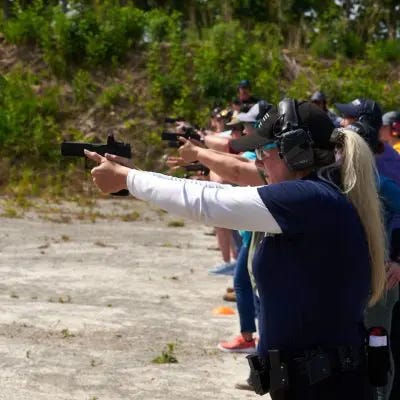Understanding and Protecting Your Physical & Mental Boundaries

I used to think boundaries were something you could just say out loud to someone, a simple “no” and everything would be fine. But over the years, I’ve learned boundaries are so much more than that. They are a form of self-respect, self-protection, and sometimes, they are a matter of survival.
What Boundaries Really Are
Boundaries are those invisible lines that define what we will and will not accept from others. They are crucial for protecting our physical and mental space. For me, learning to enforce them didn’t happen overnight. It was a process of trial and error, and unfortunately, some painful experiences that taught me how important it is to set limits early.

I have had situations where I ignored my gut feelings or allowed someone to cross lines because I didn’t want to seem rude or make waves. For instance, I once had a boss who made inappropriate comments during phone calls that I just brushed off. But over time, it escalated. I did not shut it down when I should have, and it became harder to establish that boundary the longer I waited. It taught me that even small, seemingly innocent things can become dangerous if you do not speak up early.
Physical Boundaries: Your Right to Space
Your body is yours, and no one has the right to invade your space without your consent. This seems obvious, but we have all been in situations where we’ve let others get too close, whether physically or emotionally. Maybe you have had a moment where someone gave you an unwanted hug, or someone backs you into a corner in a crowded room. Do not hesitate to speak up, worried you’d come off as rude or unfriendly. This is about your safety and comfort, and they always come first.
If someone makes you feel uncomfortable, even in small ways, speak up. Step back. Create that space for yourself. Your comfort should never be negotiable.
Mental and Emotional Boundaries: Protecting Your Peace
Just as your physical space needs protection, so does your mental and emotional well-being. Unfortunately, it is easy to let people manipulate your thoughts and feelings. There was a time when I let people make me feel guilty for setting boundaries. I’ve had people gaslight me, make me question my instincts, and convince me that I was overreacting.
One instance that stands out was with a massage therapist I trusted. Over time, their behavior slowly pushed my boundaries until it became clear that I was not safe. It was not a sudden violation; it was a slow creep. I felt vulnerable, having built trust with this person. But I learned the hard way that even the most trusted relationships can become dangerous if boundaries are not respected.
That experience taught me that protecting my mental and emotional space is just as important as protecting my physical safety. It’s okay to say “no” to anyone who tries to disrespect your boundaries, whether it’s through emotional manipulation or any other form of control.
How to Protect Your Boundaries and Stay Safe
Protecting your boundaries requires more than just awareness. It takes practice and confidence. Here’s what I have learned over the years:
- Trust your gut: Your instincts are a powerful tool. If something feels off, it probably is. I’ve had moments where my gut was telling me something was not right, but I ignored it to avoid conflict. Do not do that. Trust yourself.
- Be clear and direct: Saying “no” is powerful. And remember, no explanation is necessary. If someone makes you uncomfortable, tell them. “Please step back,” “I am not okay with this,” “I don’t want to discuss this.” Simple, firm, and clear. No need to justify it.
- Practice saying no: The more you say no, the easier it gets. Start practicing with unimportant things, like turning down invitations you don’t want to accept, or saying no to requests you don’t feel like fulfilling. It will get easier over time.
- Distance yourself from people who disrespect your boundaries: If someone keeps crossing the line, it’s time to walk away. Trust me, I have learned this lesson the hard way. And cutting ties with repeat offenders is one of the best forms of self-care.
- Surround yourself with people who respect you: The people who genuinely care about you will respect your boundaries, no questions asked. These are the people who will support you and help you maintain your peace.

Final Thoughts: Boundaries Are Non-Negotiable
Learning to protect my boundaries was not easy, but it was necessary. The hardest part was realizing that I had let my boundaries be disrespected by others in the past, and that I had not even realized how dangerous that was until it was too late.
I cannot stress this enough: your boundaries are valid. They are essential. And anyone who does not respect them does not deserve access to you.
Your path is yours alone. Guard it fiercely and walk it boldly.
Stay connected with us on Facebook and Instagram for more self-defense tips, safety insights, and empowering content tailored to help women walk their path with confidence. Let’s keep the conversation going. Join us today!






Responses